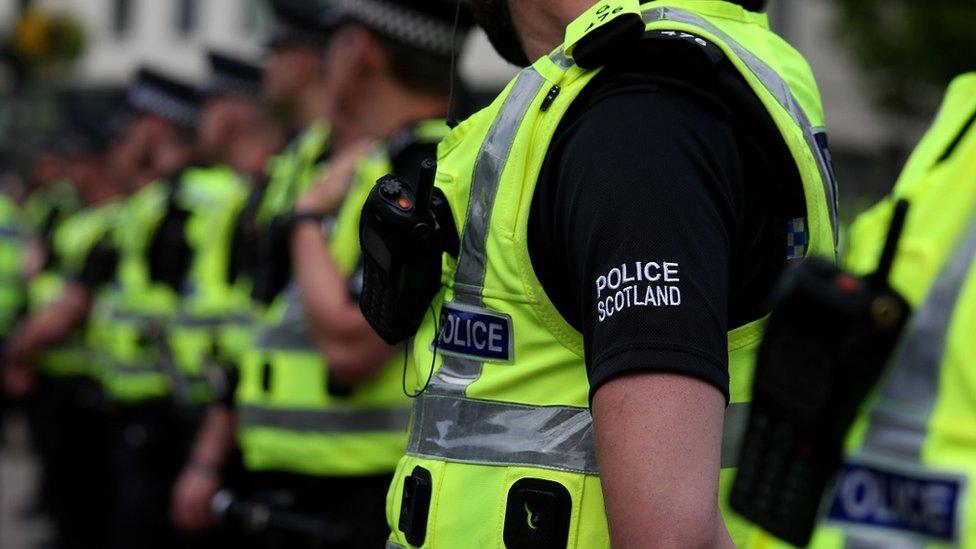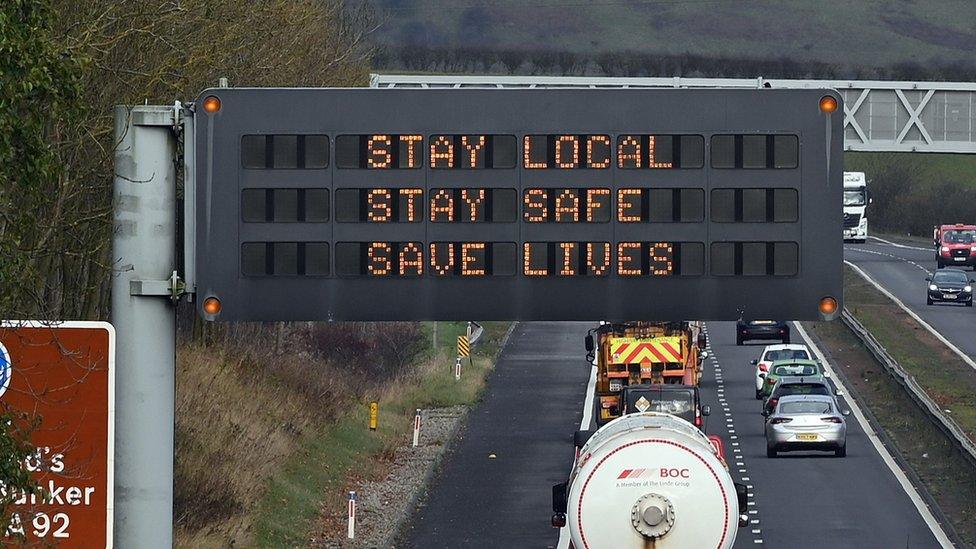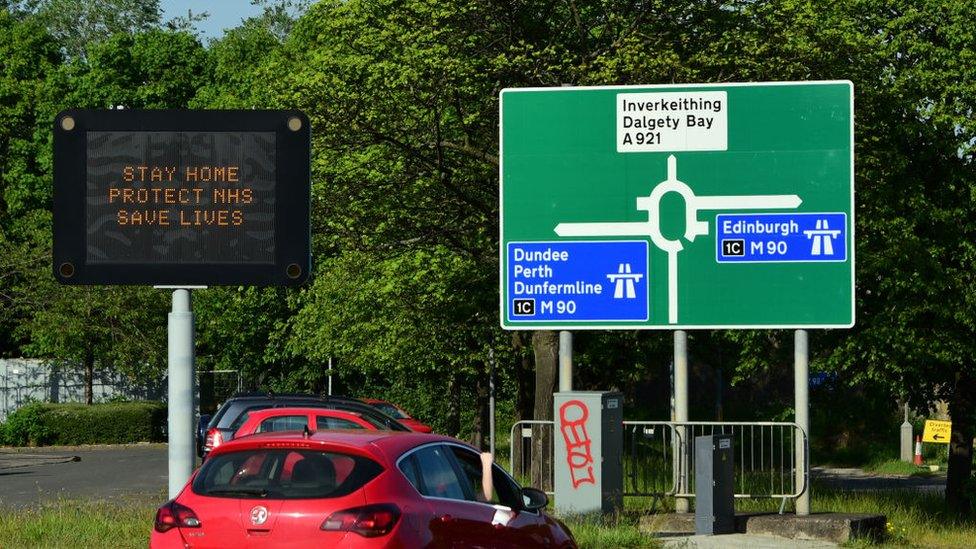Covid: People in deprived areas more than twice as likely to get fines
- Published

People living in the most deprived areas of Scotland were 2.6 times more likely to receive a fine during Covid lockdowns, figures show.
More than 20,000 people got police fixed penalty notices during 2020/21 for breaking Covid restriction rules.
Three quarters of all fines were given to people under the age of 30, according to a University of Edinburgh study.
And more then one in four were handed out in the 10% most deprived areas.
The Scottish government said its Covid rules had been "consistent with human rights principles, necessity and proportionality".
The figures showed that people living in deprived areas were 12.6 times more likely to be handed a fine at the start of the pandemic.
However, this number reduced substantially as police dealt with breaches by people from a wider range of social backgrounds as the pandemic progressed.
Research showed that fines issued to people for breaching the Covid regulations were more likely to be paid than fines issued for anti-social behaviour.
The report analyses quarterly fines data published by the Scottish Courts and Tribunal Service (SCTS) as well as linked administrative data from Police Scotland and the SCTS.
Edinburgh Law School's Professor Susan McVie said it was the first report to examine the payment of fixed penalties received from breaching Covid restrictions.
"Concerns that the public would reject these penalties, and fail to pay them, are not founded by this study," she added.
"However, it does raise concern about the impact of incrementally increasing fines on those who may have been least able or willing to comply with the regulations as it is likely that these individuals were also less able to pay their fines."
Prof McVie noted that enforcement was the last resort for police dealing with people who had breached the rules.
She said: "It is difficult to say to whether the temporary policing powers contributed to reducing the spread of the disease or saving lives.
"Moreover, it is clear that the legitimacy of the regulations in the eyes of the public waned over time, which posed significant challenges for the police."
The publication of the report coincides with an event organised by the Scottish Police Authority to reflect on the oversight of policing during the pandemic in Scotland.
A Scottish government spokesman said: "The vast majority of the public abided by the important Covid-19 regulations throughout the pandemic as part of a package of public health measures that were consistent with human rights principles, necessity and proportionality.
"Police Scotland's approach to engage, explain, encourage and enforce where appropriate and proportionate made a crucial contribution to tackling the pandemic and in building the compliance and confidence of the public."
- Published27 May 2021

- Published19 January 2021
